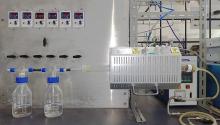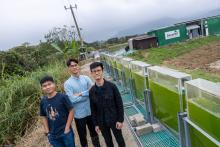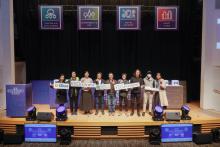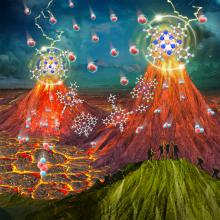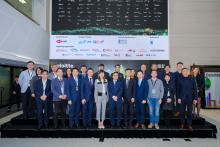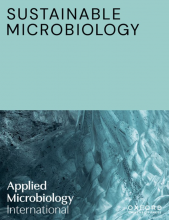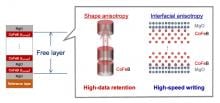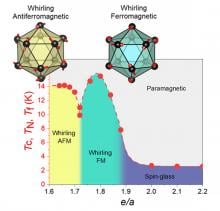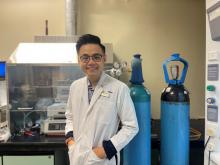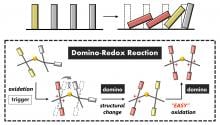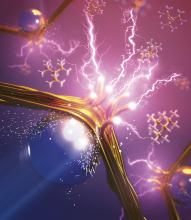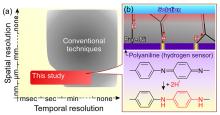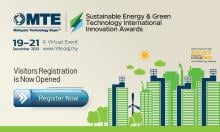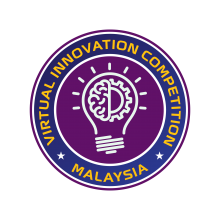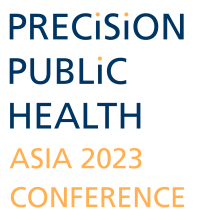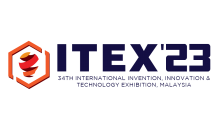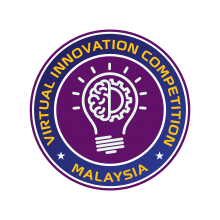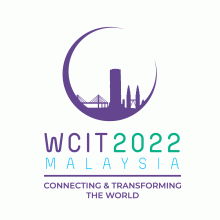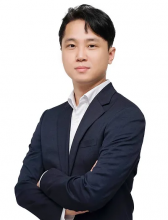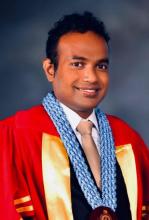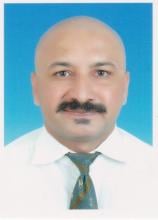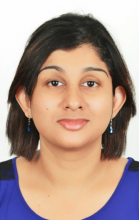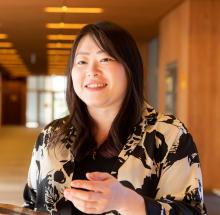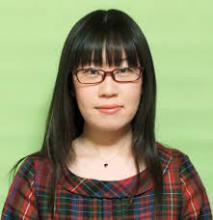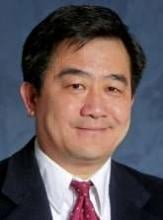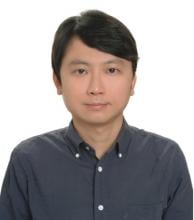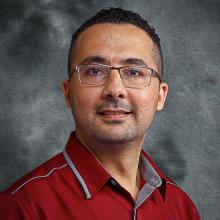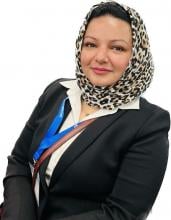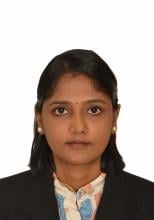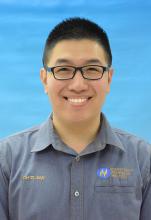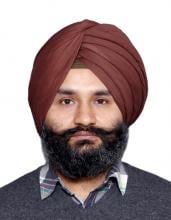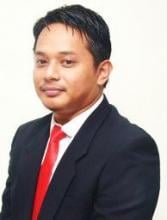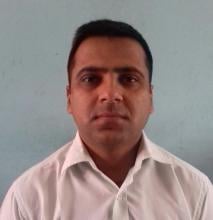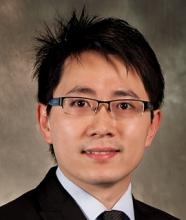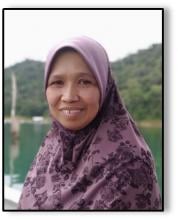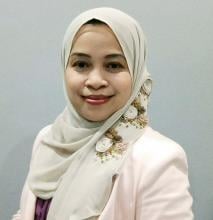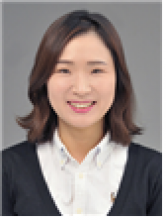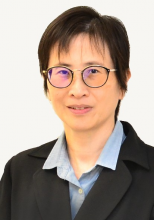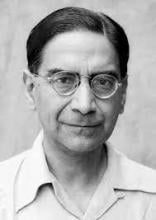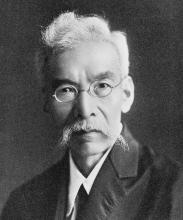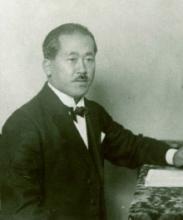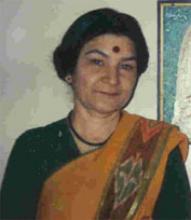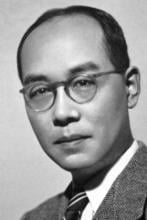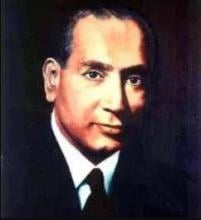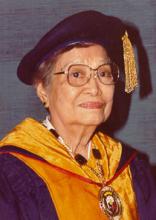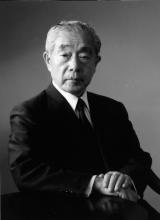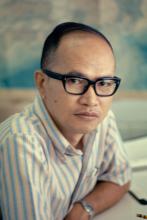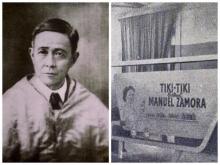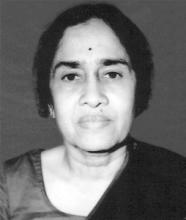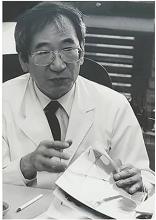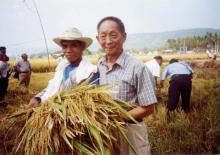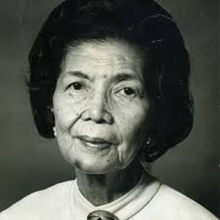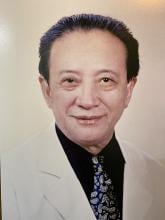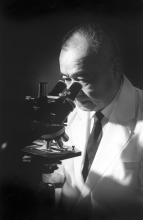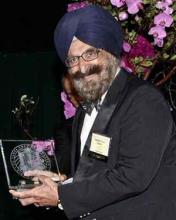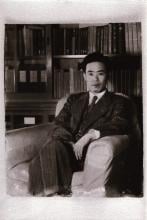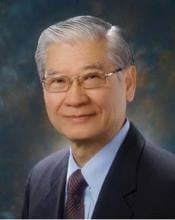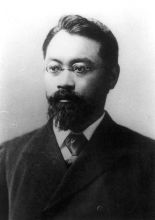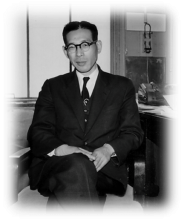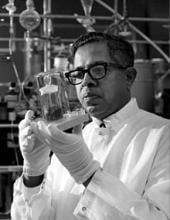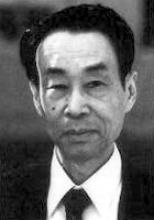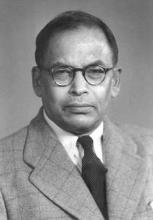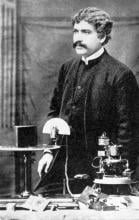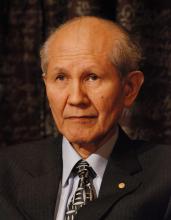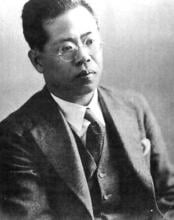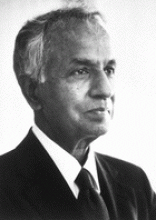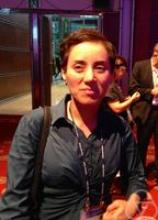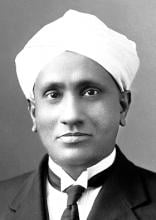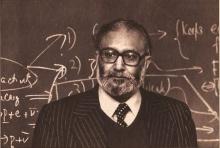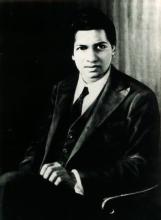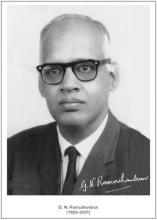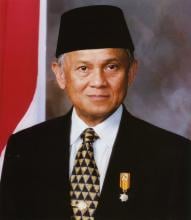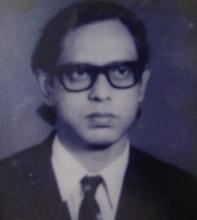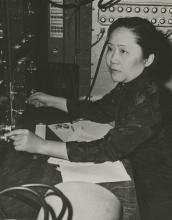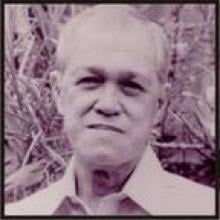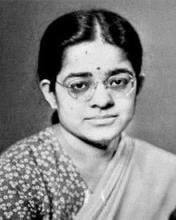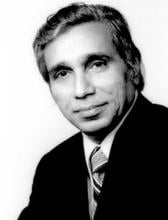Innovation
News
26 Apr 2024
Chemical and heat treatment of sewage sludge can recover phosphorus in a process that could help address the problem of diminishing supplies of phosphorus ores.
25 Apr 2024
Academic, clinical and industry partners signed several MoUs with City University of Hong Kong at a special ceremony on 24 April to mark the establishment of the CityUHK Institute of Digital Medicine (IDM).
16 Apr 2024
Algae, a kind of organism commonly found on the water surface, is a highly efficient carbon absorbent, which can capture more carbon dioxide (CO2) than trees. Alcarbo Technologies Limited (Alcarbo) is a biotechnology company incubated by the Seed Fund and Angel Fund of City University of Hong Kong (CityU)’s HK Tech 300. It cultivates microalgae using genetic mutation technology and uses its self-developed “photobioreactor system” (PBRs) and nanobubble technology to enhance the carbon capture capacity of microalgae. This allows microalgae to capture about 68 times the amount of CO2 of an equivalent area of forest, making them “Super Carbon Capture” species.
21 Mar 2024
Cellulose, abundantly available from plant biomass, can be converted into molecules used to make a new class of recyclable polymers, to sustainably replace some plastics.
19 Mar 2024
The 12th Starch Value Chain ASIA conference was held in Vientiane, at Crowne Plaza Hotel, from February 27 to 29, 2024. The conference encompassed four key themes: Asia’s starch markets, industrial and food-grade tapioca starch in Laos with expansion plans, sustainable climate-smart agri-technology for rice and cassava cultivation, and challenges for future growth in Asia's biogas-to-energy sector.
12 Mar 2024
The Education University of Hong Kong (EdUHK) entrepreneurs swept the board at the Hong Kong Techathon+ in January 2024, winning gold, silver and bronze medals in the Digital Economy (Open Group) category.
08 Mar 2024
An international multidisciplinary team of researchers from Singapore, India, Malaysia and Indonesia are breaking boundaries in 3D Printing. They have developed Coir Fiber Polymer Composites with enhanced strength, presenting a new and sustainable way for applications in food and medical packaging.
28 Feb 2024
Molecules that are induced by light to rotate bulky groups around central bonds could be developed into photo-activated bioactive systems, molecular switches, and more.
25 Feb 2024
Fibre-reinforced composites, prone to internal damage, benefit from fibre hybridisation. Using ductile fibre glass mesh (FGM) in ramie/FGM composites, this study shows improved damage resistance, load-bearing, and deformation capacity.
23 Feb 2024
Asia Research News monitors the latest research news in Asia. Some highlights that caught our attention this week are a biosensor to detect meat freshness, a cute and spooky sea creature, and how even shorter amounts of exercise can lead to benefits.
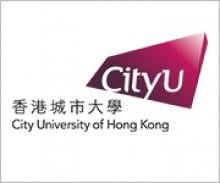
23 Feb 2024
City University of Hong Kong (CityU) shone once again in the 2023 rankings of the top 100 universities granted US utility patents, according to the National Academy of Inventors (NAI). CityU was ranked 43rd in the world and for the 8th consecutive year, was ranked first among local institutions.
21 Feb 2024
Metal-nitrogen-carbon (M-N-C) single-atom catalysts are a promising type of catalyst that could help provide cost-effective alternatives to platinum-based ones. However, there are still some aspects of their behavior that are misunderstood. To rectify this, a group of researchers delved into the intricacies of M-N-C catalysts, yielding promising results.
19 Feb 2024
Standing at the forefront of technological evolution, the Malaysia Technology Expo (MTE) 2024, taking place from 22-24 February at the World Trade Centre Kuala Lumpur, stands out as a crucial hub for innovation, inspiration, and intellect. We extend a warm invitation to everyone, from tech enthusiasts to industry experts, to join this impressive showcase of technological wonders and pioneering breakthroughs.
16 Feb 2024
At Xi’an Jiaotong-Liverpool University, four researchers in diverse fields of study – from urban planning to digital architecture – are working hard to reach sustainability goals.
07 Feb 2024
Two start-ups from City University of Hong Kong (CityU) have been honoured at the “2023 Deloitte Hong Kong Technology Fast and Rising Star” awards. The awards aim to identify and recognise fast-growing and innovative local companies that promote the development of innovation and technology ecosystems in Hong Kong, the Greater Bay Area, and beyond. One of the the CityU start-ups was recognised for its innovative liquid biopsy technology for accurate cancer diagnosis and disease monitoring, and for its high revenue growth rate. The other start-up was recognised for its expertise in electricity-free cooling technology, which is helping to facilitate the global transition to carbon neutrality.
31 Jan 2024
Carbon nanostructures could become easier to design and synthesize thanks to a machine learning method that predicts how they grow on metal surfaces. The new approach, developed by researchers at Japan’s Tohoku University and China’s Shanghai Jiao Tong University, will make it easier to exploit the unique chemical versatility of carbon nanotechnology.
24 Jan 2024
This week sees the launch of the first published content in Sustainable Microbiology, the new open access journal which will apply microbiology to sustainability. The journal is published by Applied Microbiology International.
22 Jan 2024
Researchers from Thailand have pioneered the conversion of waste HDPE milk bottles into high-stiffness composites, utilizing PALF reinforcement for a 162% increase in flexural strength and 204% in modulus. This eco-friendly upcycling boosts mechanical properties while sequestering carbon, presenting a promising path for sustainable materials.
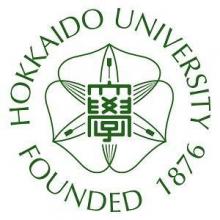
19 Jan 2024
Temperature-controlled, reversible shifting of molecular gear motion in a solid crystal opens new possibilities for material design.
18 Jan 2024
Researchers at Tohoku University have developed guidelines for a single-nanometer magnetic tunnel junction (MTJ), allowing for performance tailoring to meet the requirements of diverse applications, ranging from AI/IoT to automobiles and space technologies.
18 Jan 2024
Non-Heisenberg-type approximant crystals have many interesting properties and are intriguing for researchers of condensed matter physics. However, their magnetic phase diagrams, which are crucial for realizing their potential, remain completely unknown. Now, for the first time, a team of researchers has constructed the magnetic phase diagram of a non-Heisenberg Tsai-type 1/1 gold-gallium-terbium approximant crystal. This development marks a significant step forward for quasicrystal research and for the realization of magnetic refrigerators and spintronic devices.
15 Jan 2024
Research by Assistant Professor Edison Ang Huixiang and his team from National Institute of Education/Nanyang Technological University Singapore
15 Jan 2024
Unleashing stem cells from dog urine, Electronic Tongue, Tapping into human motion energy, How neurons network, and A radical use for plastic bags. Plus Communicating science two decades on. Read all in the latest Editor's Choice.
09 Jan 2024
Transmitting an effect known as a domino reaction using redox chemistry has been achieved for the first time.
25 Dec 2023
Researchers employ common plastics to kickstart radical chain reactions, creating a way to reuse plastic waste while improving process safety and efficiency.
19 Dec 2023
Using conventional X-rays and lasers to detect the atomic state of hydrogen is challenging, given its small size. A group of researchers may have overcome this barrier by unveiling a new visualization technique that employs an optical microscope and polyaniline to paint a better picture of how hydrogen behaves in metals.
15 Dec 2023
A new study have compared the reinforcing efficiency of pineapple leaf fiber (PALF) and cultivated flax fiber in poly(butylene succinate) composites. PALF, a less explored but potentially sustainable alternative, outperformed flax at 20 wt.%, showcasing its potential in high-performance bio-composites and aligning with environmental goals.
15 Dec 2023
The MTE 2023 Sustainable Energy and Green Technology International Innovation Awards (SEGT IIA) is set to take place from 19-21 December 2023. This prestigious accolade dedicated to celebrating outstanding achievements and breakthrough innovations in sustainable energy and green technology.
14 Dec 2023
Lingnan University and Manchester University co-hosted a two-day China and Higher Education Conference 2023 on 13-14 December, exploring the theme "New Spaces and Places in Education: Technology and Innovation in Chinese Higher Education". The conference brought together distinguished representatives from the global academic community. The keynote address by Prof S. Joe Qin, the President of Lingnan University, at this event was particularly noteworthy, adding a touch of brilliance to the entire proceedings.
Events
23 Oct 2024
The 12th Annual Biologics World Taiwan (BWT) 2024 conference will go into a range of pivotal topics, including must-see innovations originating from Taiwan, best practices in clinical research and trials, optimization of upstream processing, cost reduction in downstream processes, advancements in CAR-T and stem cell therapy, compelling case studies in regenerative medicines, and more.
23 Oct 2024
Taiwan Biopharma Excellence Awards (TBEA) 2024 was established in 2022 to celebrate exceptional bioprocessing & research experts, and the brains behind innovations that combine cost efficiency with enhanced quality.
13 Aug 2024
The 13th Annual Biologics Manufacturing Korea (BMK) 2024 conference encompasses crucial themes such as upstream processing with a focus on high-throughput cell line development and cell culture, downstream processing involving product concentration and purification by chromatography, analytics and quality assurance, automation, Bioprocessing 4.0, and the digitalization landscape.
13 Aug 2024
Key themes from Vaccine World East Asia (VWEA) 2024 include the swift acceleration of research initiatives, the optimization of manufacturing capabilities, and the seamless integration of novel technologies poised to revolutionize vaccine development.

07 Aug 2024
The MTE 2024: Advanced Healthcare and Life Sciences International Innovation Awards & Expo (AHLS IIAE) is dedicated to recognizing and celebrating groundbreaking innovations in the healthcare industry.
24 Jul 2024
Asia’s largest bioindustry-focused gathering, BIO Asia–Taiwan 2024,
will be held July 24th to 28th, 2024, in Taipei, Taiwan.
23 Apr 2024
Join us at ASIAWATER 2024, the 13th edition of the leading water and wastewater platform for developing Asia, on 23-25 April 2024 at Kuala Lumpur Convention Centre, Malaysia.
01 Mar 2024
Featuring innovations from diverse fields and streams, VIC 2024 provides an opportunity for educators, students, and the public to participate and showcase their innovations and designs through a digital platform.
22 Feb 2024
Discover the future at the Malaysia Technology Expo 2024 (MTE 2024), where innovation takes center stage, and tomorrow's possibilities become today's reality.
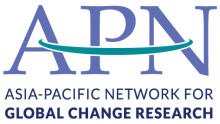
09 Nov 2023
Seeking to build experience in collaborative regional research and scientific capacity development in the Asia-Pacific region? Interested in writing grant proposals for global environmental change projects? Come and join our open capacity building seminars to receive grant proposal writing guidance and an introduction to the Asia-Pacific Network for Global Change Research (APN)'s 2023 Call for Proposals. Two seminars are available on the 9th and 10th of November, and we warmly welcome participation from early career professionals and global change practitioners in the Asia-Pacific region.
19 Dec 2023
Embrace Innovation and Illuminate the Future with MTE 2023
Sustainable Energy and Green Technology International Innovation
Awards
31 Oct 2023
Experience TechInnovation 2023, held at Marina Bay Sands from October 31 to November 2. Explore themes of Sustainability, Health and Well-being, and AI in Healthcare.
04 Oct 2023
The 27th World Congress on Innovation & Technology (WCIT 2023) and the 6th International Digital Economy Conference Sarawak (IDECS 2023) are two major events in the global tech industry.

18 Oct 2023
The Malaysia Technology Expo (MTE) 2023: Sustainable Development Goals International Innovation Awards & Expo (SDG IIAE) is the first in the region focused on recognizing innovations, initiatives, programmes and ideas which contribute to sustainability, eradicating poverty, improving well-being, protecting our planet, and building peace and prosperity.

04 Oct 2023
Innovators and government officials will gather together to share insights on improving learning outcomes across the region alongside an expo showcasing some of the world’s best EdTech solutions.
12 Jul 2023
Advancing Precision Public Health in Asia and Beyond – The Future is Now
12 Oct 2023
Taiwan Innotech Expo (tie) is one of the leading invention shows in Asia. The physical event will take place from October 12-14, 2023 at Taipei World Trade Center Hall 1.
09 Aug 2023
The Malaysia Technology Expo (MTE) 2023: Advanced Healthcare and Life Sciences International Innovation Awards & Expo (AHLS IIAE) is set to take place virtually on 9-11 August 2023, bringing together the best and brightest minds from the healthcare and life sciences industries.

17 Apr 2023
To achieve Net Zero, the governments of the UK and Singapore are targeting ambitious carbon reduction goals, and electromobility has emerged as a key strategy. Now, Newcastle University (UK) and ERI@N (Singapore) are jointly hosting an international event, known as the Electromobility symposium, in Singapore to debate and discuss experiences in implementing land transport electrification in Singapore and the UK, evaluate policy landscapes, and identify successes and obstacles to inform future strategies.
11 May 2023
ITEX is the Asia’s Leading Invention, Innovation and Technology Exhibition, targeted at securing investment, manufacturing and commercialisation prospects and partners. The exhibition features inventions across 15 classifications related to innovation or technology
16 Mar 2023
Malaysia Technology Expo 2023 Goes Hybrid! Since 2001, MTE has been celebrating outstanding work by innovators, researchers, scientists, students and entrepreneurs worldwide.

23 Dec 2022
This Forum will take place on 23rd December 2022 in Kobe, Japan. It will be held in hybrid format (on-site and on-line).
15 Sep 2022
A prestigious platform for innovators to share their ideas to the world. Academicians, practitioners, and students are welcome to participate in VIC21.
17 Oct 2022
The event is the first in the region focused on recognizing innovations, initiatives, programmes and ideas which contribute to sustainability, eradicating poverty, improving well-being, protecting our planet, and building peace and prosperity.
13 Sep 2022
Known as the Olympics of the World’s Tech Industry, WCIT2022 MALAYSIA sets out to be the gateway to Southeast Asia while connecting the world – a definitive global event of technology businesses.

14 Sep 2022
EDUtech Thailand returns for its 2nd edition on 14-15 September to bring together the education community across Thailand.
11 Oct 2022
Taiwan Innotech Expo (TIE) is the leading invention show in Asia. The physical event will take place from October 13-15, 2022 at Taipei World Trade Center Hall 1.
26 May 2022
The International Invention, Innovation & Technology Exhibition (ITEX) is the leading international exhibition that features new inventions, technologies, and products, targeted at securing investments, manufacturing and commercialisation prospects and partners.
06 Sep 2022
Identity Week Asia is a conference and exhibition bringing together the brightest minds in the identity sector to promote innovation, new thinking, and more effective identity solutions.
Researchers
I'm currently an adjunct professor at the Asian Institute of Management in Manila. I crafted a course called Art-Science based on my dissertation on Culture as Transformative Innovation. Since 2017, my consultancy & studio has been collaborating with the Dept. of Science & Technology in the Philippines.
Daegu Gyeongbuk Institute of Science and Technology (DGIST)
Professor Dae-hyun Nam is dedicated to advancing electrocatalysts for sustainable energy conversion and storage. By leveraging expertise in materials science, engineering, and chemistry, he aims to address pressing energy and environmental challenges, paving the way for a sustainable future.
Dr Sarkar is a senior research fellow at the Murdoch Children's Research Institute in Melbourne, Australia. She is
actively engaged in collaborating with academic and industry stakeholders and leads multiple projects for the development of novel therapeutics/vaccines to tackle antimicrobial resistance.
Ts. Uganeeswary Suparmaniam, AMIChemE (UK) is a multiple award-winning young scientist, sustainability advocate, and climate activist attached to the HICoE-Centre for Biofuel and Biochemical Research, Institute of Self-Sustainable Building, PETRONAS University of Technology, Malaysia.
Dr. Chong Li Choo is an accomplished academic, Associate Professor at Taylor's University, expert in food technology, and innovative product design. Award-winning researcher, director for Food Security & Nutrition Impact Lab, and impactful leader in the field.
Chameera Udawattha, a pioneering architect and researcher, investigates eco-friendly construction materials, exploring alternative solutions for construction and building issues. His work promotes sustainable building practices.
Sarfraz Ahmed is working as a Scientist at Harvard Medical School's Mass General Hospital. His research interests include Diseases and Therapeutics especially focus on Cancer and Therapeutics, Cancer Immunology, Photomedicine, Photo compounds and Photodevices for Cancer, Cancer and Natural agents, Nanomedicine and Nanotechnology for Cancer, Drugs resistance, Microbiology (Bacteriology & Virology) and Drugs resistance
Universiti Sains Malaysia
Angeli Ambayya is a Scientific Officer (Ministry of Health, Malaysia). She is passionate about research in the field of hemato-oncology.
Angel Investor and a Vision-driven entrepreneur/executive with career-long record of business growth and innovation.
Kavli Institute for the Physics and Mathematics of the Universe (Kavli IPMU)
Miho Katsuragawa is a specially appointed project researcher at Kavli IPMU. Her areas of expertise include experimental physics, detector/instrument development, medical application of gamma-ray imaging, and high energy astrophysics.
Dr Fabien Grasset is a Research Director at the Centre national de la recherche scientifique (CNRS) and currently serving as Director of Research for Rennes Institute of Chemical Sciences (ISCR). His areas of expertise include materials chemistry, solid-state chemistry, nanotechnology, nanoparticles, optical coatings and thin films.
National Institute for Materials Science (NIMS)
Dr Naoka Nagamura is senior researcher at the National Institute for Materials Science (NIMS) and visiting associate professor at Tokyo University of Science. She researches advanced materials, electrochemistry and photoemission spectroscopy.
City University of Hong Kong (CityU)
Professor Alex Jen Kwan-yue is Chair Professor of Materials Science and Director of the Hong Kong Institute for Clean Energy at the City University of Hong Kong (CityU). His expertise includes the use of molecular engineering and self-assembly for hybrid materials.
Institute for the Advanced Study of Human Biology (ASHBi), Kyoto University
Dr Ashfaq Ahmad Shah 'اشفاک ' born on 6 June 1992, from south Kashmir, Doderkoot ددیرکوٹ Kulgam, Jammu and Kashmir, India is the infection immunity doctoral researcher at the Graphic Era (Deemed to be University), Dehradun, UK, India. Dr Shah is pursuing novel dimensions of infection immunity pertaining to the correlation and impact of phyto-immune components termed phytoalexins and phytoanticipins on the benign immune system of human beings. This parameter of immunology is termed phytoalexin-immunomodulation scrutiny. His area of interest lies in Preclinical and clinical studies, i.e. vaccine adjuvant development, development of anti-inflammatory and antimicrobial compounds, evaluation of antibiotic resistance, study of Immuno-modulatory activities, disease model studies, protease isolation against specific protein antigens, and the discipline of Kalology including tyrosinase inhibition, PPO inhibition, skin whitening agents, kerato-peeling etc. Dr Ashfaq is a Doctoral Researcher, Reviewer and Editorial member of several journals and books. He is having several publications in journals of national and international repute. So far he has published more than thirty scopus infection/immunology/pharmacology scientific papers, including Fifteen international book chapters and two international books. Mr Shah received the Young scientist award in August 2023 for his groundbreaking academic performance in the field of infection immunity. Mr Shah has also been an editor of Wikipedia pages in medical science since 2015 with more than 1000 edits in medical topics available to medical literature worldwide.
Dr. Zong-Hong Lin is a Professor at the Institute of Biomedical Engineering, National Tsing Hua University and at the Department of Biomedical Engineering, National Taiwan University.
Universiti Malaysia Sarawak
Yonis.M.Yonis Buswig , He is a Lecturer in the Electrical and Electronic Engineering Department, Faculty of Engineering, Universiti Malaysia Sarawak. Yonis.M.Yonis Buswig has authored and co-authored a number of well-recognized journals and conference papers and has been a regular reviewer for IEEE, Wiley and other journals. His current research interests include the area of Power Electronics, Renewable energy technology, and Motor Drives Control. He is a Member in Board of Engineers Malaysia (BEM).
Nanyang Technological University
Dr. Edison H. Ang has a background in materials science and engineering along with a diverse skill set. He completed his undergraduate studies, earning B.S. degrees, at Nanyang Technological University in Singapore in 2012. Later, in 2017, Dr. Ang received his Ph.D. from the same university. He gained additional experience as a Postdoctoral Fellow at the National University of Singapore from 2016 to 2017 and later served as a Research Fellow at Nanyang Technological University from 2017 to 2019. In mid-2018, he also took on a Visiting Scholar role at the Technical University of Munich in Germany.
Currently, Dr. Edison H. Ang serves as an Assistant Professor at the National Institute of Education/Nanyang Technological University.
His expertise encompasses various areas, including 2D Nanomaterials and Nanotechnology, Energy Storage and Conversion, Sensor Technology, Membrane Technology, Additive Manufacturing, Catalysis, Waste-to-Wealth, Surface Coating and Film, Circular Economy, Renewable Energy, Sustainability, and Chemistry and Chemical Engineering.
Dr. Hira Khalid is serving as Associate Professor at Forman Christian College University, Lahore, Pakistan. She is also a US Fulbright Fellow and a member of several prestigious scientific organizations, including the American Chemical Society (ACS), the Royal Society of Chemistry (RSC), the International Union of Pure and Applied Chemistry (IUPAC), the Organization for Women in Science for the Developing World (OWSD), and the Chemical Society of Pakistan (CSP).
Senior lecturer at Universiti Tun Hussein Onn Malaysia and actively involve in research and innovation. Participated in many innovation competition and won accreditation nationally and internationally. Received title Inv. from IFIA for innovators.
Generally, I am interested in Business Management and Educational Management. To be specific, my areas of specialization include mobile leadership, blue ocean leadership, motivation, employee engagement, team performance.
Dr Singh is working as an Additional Professor of Radiology. Besides specializing in medical Imaging, he has received certifications in Global Health, Science Diplomacy and Biomedical Research. His areas of interest and expertise are as follows: Radiology, Nuclear Medicine, Medicine, Health, Public Health, Global Health, Health Policy, Health Systems, evidence-based healthcare and Healthcare leadership.
International Islamic University Malaysia (IIUM)
Dr. Nor Aiman Sukindar has joined International Islamic University Malaysia in 2019 and currently working as Assistant Professor in Manufacturing and Materials Department and at the same time holding a position as Chairman of the Advanced Manufacturing and Material Research Unit (AMTech). Before joining IIUM, Dr. Aiman was working with Politeknik Kuching Sarawak for more than seven years from 2011 until 2019.
Dr. Aiman has extensive experience in research pertaining to additive manufacturing technologies including the design and development of 3D printers, fabricating scaffold structures for bone replacement using biomaterials, optimization printing parameters, and any other related field. Dr. Aiman was awarded grants from industries and the government including PPRN, Tin Grant, and Sponsored research grant.
Recently, Dr. Aiman won several awards including a silver medal in Asia Innovation Festival 2022, Gold Medal in RITEC 2021 Competition in 2021, and a silver medal and Outstanding Award in SDG MTE 2021 Competition also in 2021.
I am a Health Economist/Researcher, working with UN agencies in the development of policy documents for developing countries including Nepal, Ethiopia and Pakistan.
The Education University of Hong Kong (EdUHK)
Dr Chris Tsang Yiu-fai is an Associate Professor of the Department of Science and Environmental Studies and Assistant Dean of Graduate School at The Education University of Hong Kong (EdUHK).
Singapore University of Technology and Design
Robert E Simpson is an Associate Professor at the Singapore University of Technology and Design (SUTD). Rob’s research interests are focused on designing new materials for applications in electronics, photonics, data storage, and biosensing.
Singapore University of Technology and Design
Mr. Lee Cheng Pau is currently pursuing his Ph.D in the Singapore University of Technology and Design (SUTD) focusing on 3D Food Printing.
Universiti Teknologi MARA (UiTM)
Department of Microbiology / Biomolecular Sciences
Universiti Teknologi MARA
Malaysia
International Islamic University Malaysia (IIUM)
Dr. Irina's research focuses on sustainability, including an analysis of environmental management, the urban environment, climate change adaptation and mitigation, and education for sustainable development, or ESD, and its application in real-world contexts.
Daegu Gyeongbuk Institute of Science and Technology (DGIST)
Jung Ah Cho is a Visiting Professor at the School of Undergraduate Studies, College of Transdisciplinary Studies, DGIST.
Dr. Olivia Tan Swee Leng was a Legal Counsel at Kuala Lumpur Regional Centre for Arbitration (KLRCA) and in charge of the Domain Name Dispute Resolution for both .com from Asian Domain Name Dispute Resolution Centre and .my cases, as well as Mediation/Arbitration case management. She obtained her Bachelor of Law Degree with honours in 1993 from University of London (UK) and completed her Certificate of Legal Practise (CLP) in 1996. She was the book prize winner for the Civil Procedure Paper and General Paper awarded by the Certificate of Legal Practise Board (Malaysia) in 1996. She practised as an advocate and solicitor in Malaysia in the area of Corporate Litigation, Intellectual Property (Trademark), and Banking and Conveyancing. She continued to pursue her Masters in Law at the National University of Malaysia (UKM) in 2002. Later that year, she ceased legal practise to lecture Company Law, Business Law and Commercial Law at Nilai University in Malaysia as a Senior Lecturer in Law and headed the Department of Admission and Records as a Deputy Registrar. She obtained her PhD in Law at the National University of Malaysia (UKM) in 2014. Presently, she is the Director Technology Transfer Office (TTO) at Multimedia University (MMU). One of her main duties at TTO is to manage the Intellectual Property Rights (IPR) of the academic researchers as TTO. Dr Olivia Tan is also involved in Erasmus+ Spire, European grant project as Quality Manager in 2018 to 2020. SPIRE’s overall objective is contributing to the effectiveness of Research and Innovation management at HEIs by enhancing IPR capacities at three complementary levels, thereby addressing major difficulties identified in the target ASEAN countries (Indonesia, Malaysia, the Philippines and Thailand). She is also currently a legal consultant for Valiantlytix Sdn Bhd (a Data analytic platfom) .
Giants in history
Physicist and statistician Prasanta Chandra Mahalanobis (29 June 1893– 28 June 1972), who founded the Indian Statistical Institute in 1931, is known for his pioneering application of statistics to practical problems.
Tetsuya Theodore Fujita (23 October 1920 – 19 November 1998) was a Japanese-American meteorologist who created the Fujita scale that classifies the strength of tornadoes based on damage to structures and vegetation.
In 1915, pathologist Katsusaburo Yamagiwa and his research assistant Koichi Ichikawa became the first to prove that chronic exposure to chemicals can cause cancer.
In 1915, Koichi Ichikawa along with pathologist Katsusaburo Yamagiwa became the first to prove that chronic exposure to chemicals can cause cancer.
A pioneer of bio-organic chemistry, Darshan Ranganathan (4 June 1941 – 4 June 2001) is remembered for developing a protocol for synthesising imidazole, a compound used to make antifungal drugs and antibiotics. Widely considered India’s most prolific researcher in chemistry, she also published dozens of papers in renowned journals on protein folding, molecular design, chemical simulation of key biological processes, and the synthesis of functional hybrid peptides and nanotubes.
In his over 30 year career in rice research, Munshi Siddique Ahmad (1924 – 19 October 2011) developed more than 30 varieties of high-yielding rice, including the BRRI Shail strain, which was responsible for increasing the rice production of Bangladesh from 8 million tonnes in 1965 to 20 million tonnes in 1975.
Hideki Yukawa (23 January 1907 – 8 September 1981) was awarded the Nobel Prize in Physics in 1949 for predicting the existence of the pi meson subatomic particle. Japan’s first Nobel laureate, Yakawa also expressed his support for nuclear disarmament by signing the Russell–Einstein Manifesto in 1955.
Ground-breaking cancer researcher Kamal Jayasing Ranadive (8 November 1917 – 11 April 2001) advanced the understanding of the causes of leukaemia, breast cancer and oesophageal cancer through the use of animal models. She was also among the first to recognise how susceptibility to cancer is linked to tumour-causing interactions between hormones and viruses.
Birbal Sahni (14 November 1891 – 10 April 1949), a pioneer of Indian palaeobotanical research, and founder of what is now the Birbal Sahni Institute of Palaeosciences in Lucknow, made multiple contributions to the study of prehistoric plants. These include the discovery of a new group of fossil gymnosperms (named Pentoxylae), reconstruction of the extinct Williamsonia sewardiana plant, and description of a new type of petrified wood from the Jurassic age.
The research of Filipino pharmaceutical chemist Luz Oliveros-Belardo (3 November 1906 – 12 December 1999) focussed on essential oils and other chemicals derived from native Philippine plants.
Japanese chemist Kenichi Fukui (4 October 1918 – 9 January 1998) was the first Asian scientist to be awarded the Nobel Prize in Chemistry. Together with Roald Hoffman, he received this honour in 1981 for his independent research into the mechanisms of chemical reactions.
Filipina chemist María Orosa (29 November 1892–13 February 1945) fought malnutrition and food insecurity in the Philippines by devising over 700 culinary creations including Soyalac, a nutrient rich drink made from soybeans, and Darak, rice cookies packed with Vitamin B1, which could prevent beriberi disease caused by Vitamin B1 deficiency. She was also a partisan of the guerrilla movement resisting Japanese occupation during World War II, and died after being struck by shrapnel while working in her laboratory during the Battle of Manila.
Research by Filipino plant scientist Benito Vergara (23 June 1934 – 24 October 2015) on the physiology of rice led to the development of deep-water and cold-tolerant rice varieties. Vergara also made several contributions to expanding public awareness of rice science.
Filipino chemist and pharmacist Manuel A. Zamora (29 March 1870 – 9 July 1929) is best remembered for his discovery of the tiki-tiki formula to combat beriberi, a disease caused by Vitamin B1 deficiency.
In 1939, biochemist Kamala Sohonie (18 June 1911 – 28 June 1998) became the first woman to be accepted into the Indian Institute of Science (IISc).
Korean parasitologist Seung-Yull Cho (16 November 1943 – 27 January 2019) is remembered largely for his pioneering works to control infections caused by helminthic parasites and his contribution to journal publishing.
Chinese agronomist Yuan Longping (7 September 1930 – 22 May 2021) developed the first varieties of the high-yield, hybrid rice that brought food security to multiple countries including China, which had been ravaged by food shortages as recently as the mid-20th century.
Fe Villanueva del Mundo (27 November 1911 – 6 August 2011) was a Filipina paediatrician who founded the Philippines’ first paediatric hospital.
After witnessing death and suffering as a youth in his home village during World War II, Nguyễn Tài Thu (6 April 1931 – 14 February 2021) set his sights on alleviating pain by becoming a doctor. After studying Traditional Chinese Medicine in China in the 1950s, Thu returned to Vietnam to serve in military hospitals. Eventually, he became the country’s foremost practitioner of acupuncture, a technique he first learned by inserting needles into himself.
Minoru Shirota (April 23, 1899 – March 10, 1982) was a Japanese microbiologist who invented the popular fermented drink Yakult.
Wu Lien-teh (10 March 1879 – 21 January 1960) was a Malaysian-born doctor who invented a mask that effectively suppressed disease transmission. Winning the prestigious Queen’s Scholarship enabled Wu to become the first Chinese student to study medicine at the University of Cambridge.
Physicist Narinder Singh Kapany (31 October 1926 – 4 December 2020) pioneered the use of optical fibres to transmit images, and founded several optical technology companies. Born in Punjab, India, he worked at a local optical instruments factory before moving to London for PhD studies at Imperial College. There, he devised a flexible fibrescope to convey images along bundles of glass fibres.
Japanese physicist Ukichiro Nakaya (1900-1962) made the world’s first artificial snowflakes. He started his research on snow crystals in the early 1930s at Hokkaido University, where there is an unlimited supply of natural snow in winter. By taking over 3,000 photographs, he established a classification of natural snow crystals and described their relationship with weather conditions.
David T. Wong (born 1936) is a Hong Kong-born American neuroscientist who is best known for discovering the antidepressant drug fluoxetine, better known as Prozac.
The techniques that make industrial pearl culturing possible were developed over a century ago at the Misaki Marine Biological Station in Japan. The station’s first director, Professor Kakichi Mitsukuri, emphasized to Kokichi Mikimoto in 1890 that stimulating pearl sac formation was important for pearl growth, and they went on to successfully develop methods for culturing pearls.
The field of solid-state ionics originated in Europe, but Takehiko Takahashi of Nagoya University in Japan was the first to coin the term ‘solid ionics’ in 1967. ‘Solid-state ionics’ first appeared in 1971 in another of his papers, and was likely a play on ‘solid-state electronics’, another rapidly growing field at the time.
Charles Kuen Kao (Nov. 4, 1933 to Sept. 23, 2018) was an engineer who is regarded as the father of fibre optics. His work in the 1960s on long distance signal transmission using very pure glass fibres revolutionized telecommunications, enabling innovations such as the Internet.
Cyril Andrew Ponnamperuma (16 October 1923 – 20 December 1994) was a Sri Lankan chemist who was interested in the origins of life on Earth. His research in chemical evolution showed how inanimate molecules may have given rise to the building blocks of life – a process known as abiogenesis.
Motoo Kimura (13 November 1924 – 13 November 1994) was a Japanese theoretical population geneticist who is best remembered for developing the neutral theory of molecular evolution.
Meghnad Saha (6 October 1893 – 16 February 1956) was an Indian astrophysicist best known for formulating the Saha ionization equation which describes the chemical and physical properties of stars.
Sir Jagadish Chandra Bose (30 November 1858 – 23 November 1937) was a scientist and inventor who contributed to a wide range of scientific fields such as physics, botany and biology.
Osamu Shimomura (27 August 1928 – 19 October 2018) was a Japanese organic chemist and marine biologist who dedicated his career to understanding how organisms emitted light.
Woo Jang-choon (8 April 1898 – 10 August 1959) was a Korean-Japanese agricultural scientist and botanist.
Subrahmanyan Chandrasekhar (19 October 1910 – 21 August 1995) was an Indian astrophysicist who studied the structure and evolution of stars.
Mathematician Maryam Mirzakhani (12 May 1977 – 14 July 2017) was the first and only woman and Iranian to date to win the Fields Medal in 2014 for her work on curved surfaces.
Sir Chandrasekhara Venkata Raman (7 November 1888 – 21 November 1970) was an Indian physicist who performed ground-breaking research in the field of light-scattering.
Mohammad Abdus Salam (29 January 1926 – 21 November 1996) was a theoretical physicist and the first Pakistani to receive a Nobel Prize in science.
Srinivasa Ramanujan (22 December 1887 – 26 April 1920) was a math prodigy and widely considered one of India’s greatest mathematicians. Despite having almost no formal training in mathematics, he made substantial contributions to mathematical analysis, number theory, infinite series and continued fractions.
Gopalasamudram Narayanan Ramachandran (8 October 1922 – 7 April 2001) is best known for developing the Ramachandran plot to understand the structure of short chains of amino acids, known as peptides.
Bacharuddin Jusuf Habibie (25 June 1936 – 11 September 2019) was an Indonesian engineer who was President of Indonesia from 1998 to 1999.
Abdus Suttar Khan (c. 1941 – 31 January 2008) was a Bangladeshi engineer who spent a significant part of his career conducting aerospace research with NASA, United Technology and Alstom.
Chien-Shiung Wu (31 May 1912 – 16 February 1997) was an experimental physicist who made several important contributions to nuclear physics. Wu worked on the Manhattan Project – a top-secret program for the production of nuclear weapons during World War II and helped to develop a process for separating uranium into U235 and U238.
Julian Arca Banzon (13 March 1908 – 13 September 1988) was a biochemist from the Philippines who was a pioneer in alternative fuel research. Banzon investigated the use of indigenous crops as sources of renewable fuels and chemicals.
Rajeshwari Chatterjee (24 January 1922 – 3 September 2010) was the first female engineer from Karnataka in India.
Fazlur Rahman Khan (3 April 1929 – 27 March 1982) was a Bangladeshi-American structural engineer and architect who invented the tube principle, which formed the basis for modern skyscraper design.


